
Willie Logan & The Plaids (3)

Willie Logan & The Plaids (3)
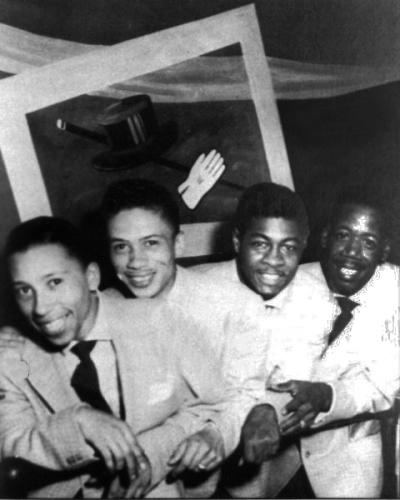
The Billy Dawn Quartet (Brooklyn, New-York)
aka The Four Dukes (1) aka The Heralds
Personnel :
Billy Dawn Smith (Lead)
Donnie Sehested (Tenor)
Tommy Smith (Baritone)
Edward "Sonny" Benton (Bass)
The Four Dukes (1)
The Heralds

The Four Kings (3) (Menphis, Tenesee)
aka The Canes
Personnel :
Don Bryant (Lead)
James "Jamie" Bryant (Tenor)
Elvin Lee Jones (Second Tenor)
Lionel Byrd (Baritone)
Discography :
Biography :
1942, Memphis, Tennessee, USA. A significant songwriter for Joe Cuoghi"s (and then Willie Mitchell"s) Hi Records, especially for (and sometimes with) his wife, Ann Peebles, Bryant was also a superb soul stylist, although most of his own recordings for Hi were cut long before Al Green, in particular, gave the label the commercial soul base it needed for continued survival. One of 10 children, Bryant"s father (Donald Snr.) featured in the gospel quartet the Four Stars Of Harmony, and in 1955, Don Jnr. and four of his brothers formed their own gospel group, the Five Bryant Brothers, which soon became "secularized" as the doo-wopping Quails.

At Booker T. Washington High School, Bryant joined a group variously called the Canes and the Four Canes, named after their "manager", local Radio WLOK DJ, D. Cane Cole. or their live gigs the Canes dressed in striped jackets and straw hats and carried walking canes. Don"s brother James was also in the group, along with Lee Jones and William Walker, reputed to be the later Goldwax, Checker and Pawn soulman, (Wee) Willie Walker. A group called the Canes were taken to Stax Records by D. Cane Cole in early 1962 where they cut "Why Should I Suffer With The Blues", but they have since been identified as probably being the Largoes, led by Lorece Thompson.


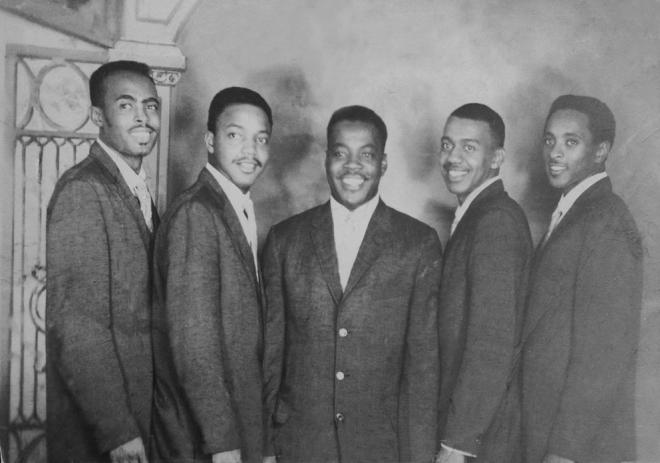
Personnel :
Samuel Jones
Alvin Standard
Kenneth Patterson
George Powell
Jimmy Ellis
Discography :
Biography :
Before its glory days as Stax, the label was called Satellite — founded in 1957, by Jim Stewart in his wife’s uncle’s garage in Memphis. Stewart was a fiddle player and so his tastes naturally leaned toward country music, which is what he originally sought to record and release on Satellite, along with rockabilly and pop tunes. A year after starting out, Stewart got a much-needed financial boost from his sister Estelle Axton, who mortgaged her house to buy a console tape recorder, and in so doing, became a financial partner in Satellite. In 1959, she helped the burgeoning label out of the garage and into a better facility in Brunswick, Tenn. (about 20 miles northeast of Memphis).

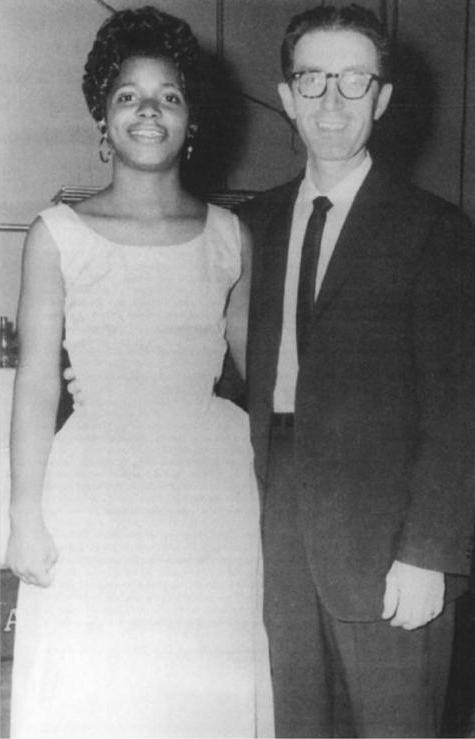
Songs :
The Veltones

The Ramblers
Carlis "Sonny" Monroe (Lead)
James "Ooh Wee" Gibson (First Tenor)
Johnny Alvin (Second Tenor/ Baritone)
The Ramblers (2)
Singles :
1963 - Oh Baby / Fine Fine Girl (Atlantic 2207)
1964 - Lonely Nights / Has It Happened To You Yet (Lu-Pine 124/Lu-Pine 1020)
1966 - (I'm A Fool) I Must Love You / Love, Love, Love (Big Wheel 321/322)
1966 - Standing On Guard / I Can't Help It (Big Wheel 1967)
1967 - Love Look In Her Eyes / In Time For The Blues ((Big Wheel 1971)
1967 - Good Good Feeling / Love You Like You Never Been Loved (Big Wheel 1972)
Biography :
The Falcons were during their history two groups with the first group having two eras. Coming together in the mid 50's, with a mixed race line-up of Bob Manardo, Eddie Floyd, Ton Shelter and Arnett Robinson, with Willie Schofield joining soon after. Eddie Floyds uncle Robert West became the groups manager. Bob Manardo was soon drafted and Tom Shelter decided to enlist himself. West held auditions which in turn lead to Joe Stubbs joining the ranks along with guitarist Lance Finnie, Mack Rice following not too long after replacing Arnett Robinson.
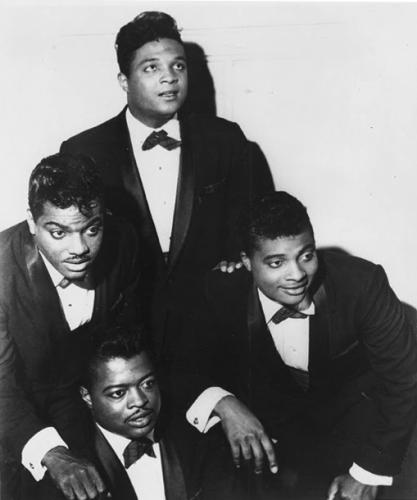
Without going into too much detail this was essentially the first era of the group, the second, after changes to the line up lead to Wilson Pickett joining the group to provide vocals. Not long after signing for Atlantic and after just one session and one solitary release 1962, the group split, most of the group did have solo careers by this time as well as their time with the group.

This left West with just a name, a name he had no intention of seeing become history. Early 1963 West saw a group play in Cleveland, The Fabulous Playboys, coincidentally one he managed.
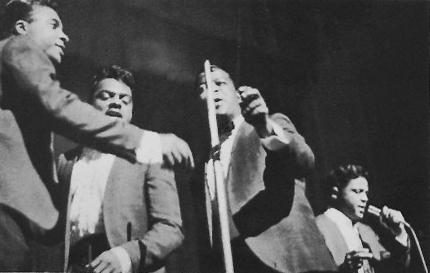
The Ramblers (2)

Personnel :
Donald Woods (Lead)
Randolph Bryant (Tenor)
Willie Graham (Second Tenor)
Ira Foley (Bass)
Biography :
Donald "Buster" Woods originally recorded with The Medallions, from Los Angeles, California. The Medallion's group leader was Vernon Green, but when Woods split from Green he took three of the Medallions with him to form The Bel-Aires, who were known as the Vel-Aires when they weren't backing Woods. In 1954, Flip Records, a small, Hollywood based label, that specialized in Doo-Wop, recorded two Singles by The Bel-Aires, "This is Paradise," backed with "Let's Party Awhile," (Flip #303) and "White Port & Lemon Juice," backed with "This Is Goodbye," (Flip #304).


The Bel-Aires (3)
Donald Woods & The Vel-Aires
Leroy Grammmar (Lead)
Ronald Hill (First Tenor)
Leon Harvard (Second Tenor)
Paul Brently (Baritone)
Discography :
This group began as the El Dupreys from Pittsburgh. They were always the opening act for big name groups coming to the area. They split up and later reformed as the Excitements. Ronald Hill had a medical condition that initially forced him to leave the Excitements. When the group was traveling, Hill stayed home. Therefore on the road the group was a quartet. When they were about to record for Alanna, they asked Hill to join them for the recording — which he did.


Songs :

The Elgins 1959 (L to R) William DeVase, Oscar McDonald, Kenny Sinclair, Darryl Lewis and Jimmy Smith.
Personnel:
Jimmy Smith (Lead)
William Devase
Darryl Lewis
Kenny Sinclair
Oscar McDonald
Discography :
The Bagdads
Biography :
Oscar McDonald and Jimmy Smith attended high school together in Beaumont, Texas. Jimmy, on occasion, laments the fact that he came in second place in several talent contests in Texas to Johnny Nash, of "I Can See Clearly Now" fame. Darryl Lewis, Kenny Sinclair and William Devase attended high school in southern California. Darryl and Kenny were original members of the Six Teens, of "A Casual Look" fame, along with Darryl's cousin Trudy Williams. After leaving the Six Teens, Kenny hooked up with William to sing in various groups while in high school.

Cappie, as Darryl is affectionately called by close friends, reunited with Kenny, his brother Carl, and William. He brought Jimmy into the group to sing lead. This quintet recorded "Lonely Hearts Club" b/w "Bad Man" for the Titan label in 1960 under the name of the Elements. They also recorded "My Illness" as the Elements for Titan, but this was to go unreleased at the time. Soon thereafter, Carl left the group to devote more time to pursuing an acting career. Jimmy brought Oscar McDonald into the group and the Elgins were born. Along with a change in personnel was a label change to Flip. This was a return to familiar shores. Flip had been the recording home for the Six Teens. Jimmy Smith had also recorded "I Cry And Cry Every Night" b/w "Night Time" for Flip in 1959 backed by the Lockettes. The Elgins recording on Flip of "Uncle Sam’s Man" b/w "Casey Cop" was released in 1960 and established the group on the west coast. The success of "Uncle Sam’s Man" certainly caught the attention of George Brown at Titan records.

Rembering that he still had an unreleased recording by the group (prior to the name change) still in the vaults, Brown decided to capitalize on their recent success and issued "My Illness" b/w "Extra Extra" in 1961 under the name Elgins rather than the Elements . 1962 saw the record reissued with the title of "My Illness" changed to "Heartaches Heartbreak", a somewhat less somber name for the tune. 1962 saw yet another label change for the group, this time to Lummie Fowler's Lummtone label. Their first release, Lummtone 109 was "Finally" b/w "A Winner Never Quits". Barbara Lewis, who had replaced Devase in the group at the time, is heard on "Finally", behind the lead of Darryl Lewis. Their next release, also in '62 was "Johnny I'm Sorry" b/w "A Winner Never Quits", and was also issued as Lummtone 109. "Johnny I'm Sorry" took on new life when it was issued again as Lummtone 110 this time b/w "You Got Your Magnet On Me Baby".

Devase was back in the group for their next outing on Lummtone which was "I Left My Heart In The Big City" b/w "Finally", which was resurrected from their previous release. This record was also released on the Lantam label as by the Daniels. The Elgins final recording for Lummtone in 1963 was "Your Lovely Ways" b/w "Finding A Sweetheart". In 1965, the Elgins released a more POP sounding record "Street Scene" b/w "You Found Yourself Another Fool" for the Valiant label. Sinclair, Devase and McDonald recorded again between 1968-1970 as the Bagdads, putting out four singles, most notable of which was "Bring Back Those Doo-Wops" b/w "Green Power" for the Double Shot label.
Songs :

Personnel :
Jerry Crutchfield (Lead)
Gerald Nelson (Tenor)
Jan Crutchfield (Baritone)
Olin Bryant (Bass)
Discography :
Biography :
Gerald Nelson, the tenor, is a senior 8t Murray Stats College. Jerry Crutchfield , who sings the lead, is another Murray senior, Jan Crutchfield , baritone, is a senior at Tilghman High School in Paducah and Olin Bryant, is a sophomore in the University of Kentucky College of Engineering. Jerry and Jan Crutchfield are brothers. All four are natives of Paducah, hey started singing together since 1952. In those early days, they were Gospel singers, and were known at various times as the "Melody Masters" and the "Jubilaires." Gospel singing wasn't productive in the money department, but it was good experience. Later, when they left. Paducah and enrolled, at Murray, Jerry Crutchfield, Gerald Nelson and Olin Bryant branched out into popular singing, and worked with Jimmy Cooper in a quartet called the "Four Winds." They also started working parttime when Radio Station WCBL opened in Benton. On the side, however, they continued to sing with the original quartet. In 1955, the Four Winds won the annual gospel-quartet-singing competition.





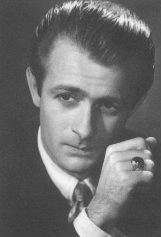

At first 'Saturday Date' was plugged as the main side but in the spring of 1959, a disc jockey in Kentucky played the flip 'Tragedy' and the disc took off. It eventually peaked at #5 on the national charts and sold over a million copies along the way. Gerald & Fred were songwriters and they wrote many songs for Elvis including "The Love Machine", "Great Shakin' Fever" for Dorsey Burnette, "That's All Right With Me" for Ral Donner.